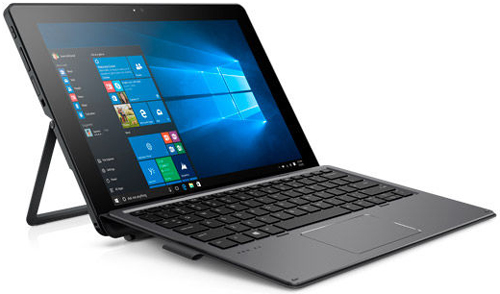Detachables Still a Little Hype-y, But Gaining in the PC Market
Detachables may be slightly heavy on hype at the moment, according to a PC market researcher, but there's no denying that the sector that's drawing in a steady stream of new entries, such as one from HP over the weekend, has potential.
"Regardless of what marketers are saying, detachable tablets are simply not putting pressure on notebooks yet," said IDC analyst Jitesh Ubrani in a statement about the market research firm's latest PC market projections.
IDC's emphasis seems to be on the "yet." Detachable tablets -- a category largely created by the Microsoft Surface about four years ago and since joined by several vendors, most notably Apple -- are growing sales faster than the overall PC market.
Well, they are gaining in annual terms. Poor performance in the just-finished fourth quarter is part of the reason it's too soon to say detachables are living up to marketers' words. The detachable tablet market saw what IDC called a "dramatic decline" in Q4 -- dropping 26 percent. IDC attributed the decline to the segment's dependence on product launch cycles from Microsoft and Apple.
Ubrani argued that right now, the allure of detachables may actually be slightly helping other categories of PCs.
"Consumers are just starting to graduate from old, consumption-based, slate tablets to a more productive detachable tablet. At the same time, the benefits of having a thin, touch-sensitive, productivity-based machine is shining light on the traditional PC category, causing vendors and consumers to focus on more premium devices in the Convertible and Ultraslim space," Ubrani said.
Over the next five years, IDC contends detachable tablets will make up a greater and greater share of overall PC sales. In 2016, detachable tablet shipments amounted to 21 million units, compared to 103 million desktops and workstations and 157 million notebooks and mobile workstations. But current trends point to a downward trajectory for the desktop category over five years, and a flat trajectory for the notebook/mobile workstation category. IDC assigns a 21 percent compound annual growth rate over the five years for detachable tablets -- projecting the category to amount to 56 million units in 2021.
That's a prediction HP is banking on, based on comments by Michael Park, vice president and general manager for mobility and personal systems at HP Inc., surrounding the launch at Mobile World Conference 2017 of the HP Pro x2 612 G2. The G2 is HP's second-generation detachable tablet, with a much more direct line of descent from the Microsoft Surface Pro than was apparent in HP's first-generation version. Telltale signs of the G2's heritage are a bar-like kickstand, a pen and an angled, magnetically-attached keyboard.
 The HP Pro x2 612 G2
The HP Pro x2 612 G2
"Today, more than 60 percent of Millennials work from more than one location and by 2020 they will be a majority of the workforce," Park said Sunday of the G2. "They want sexy mobile devices that meet their on-the-go work styles and IT needs these devices to be manageable, serviceable and secure."
Posted by Scott Bekker on February 27, 2017